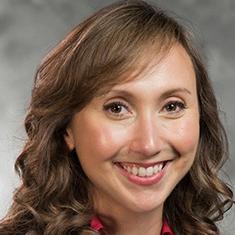A few years ago, I found a greeting card with an illustration of a sailboat speeding across blue waters, sun aglow above. “The winds of change are always blowing, all you have to do is raise your sails.” It really resonated with me at the time, so much so that I bought the card and have had it framed on a wall of my home ever since. It’s not totally clear if there’s an author of that exact quote, although a quick search will reveal somewhat similar iterations in Chinese proverb, lyrics by Willie Nelson, and more.
I’ve thought about that statement and that image recently, particularly in the context of healthcare and as health care providers. That sunny sailboat image doesn’t quite capture what it is to adapt and master the winds of change, particularly over the past year with the Covid-19 pandemic. Sometimes, it’s not so much putting up our sails as it is recognizing the time to tack and change direction. In the case of an unexpected storm and choppy seas, the art is knowing when to drop the sail or risk capsizing completely.
Some of us, myself included, have worked in multiple change scenarios, places where there is no wind at all and we are slowly roasting in the heat and sun. Or places where constant crosswinds make it difficult to stay on course. As a leader, our challenge is to make our day-to-day journey as individuals and members of our team, while also recognizing the organizational values and vision of our healthcare spaces. Often, it is the culture of the workplace that determines the capacity and spirit of transformation.
Over the course of the Primary Care Transformation Fellowship, I’ve also learned that sometimes we don’t have to be the sailor in the boat at all. Sometimes, we can help to make the wind. As clinicians, we have the capacity to be the force that creates the momentum for transformative change. It’s not an easy task, or one that we should go at alone. We must lean in on being vulnerable as much as we do on being creative. It’s in developing the capacity to work collaboratively, to listen, and to create a shared vision with others where we really have the opportunity to move beyond our everyday roles and become agents for change.
The Primary Care Transformation Fellowship has played an invaluable role in my professional development and in learning more about these concepts. It has been inspiring to hear from leaders in the Duke Health system as well as outside health care spaces share their wisdom and lessons learned. From creating a vision, engaging stakeholders, collaborating within a high performing team, to putting a plan into action, we have learned of the many tools that help to make meaningful change possible within our own clinical settings.
It’s empowering to know that even though we all come from different types of clinical and leadership experience, and have unique ideas for primary care transformation, we each have the ability to develop the skills and learn the tools necessary to be a source of collaboration and support in our workplaces.. Know your boat, be ready to adapt, and always be aware but not afraid of the wind. Raise those sails and get sailing!
Sara Mazzarelli is a fellow with the Primary Care Transformation Fellowship Program. Email sara.sawka@duke.edu with questions.
Editor’s note: Blogs represent the opinion of the author, not the Department of Family Medicine and Community Health, or Duke University.
